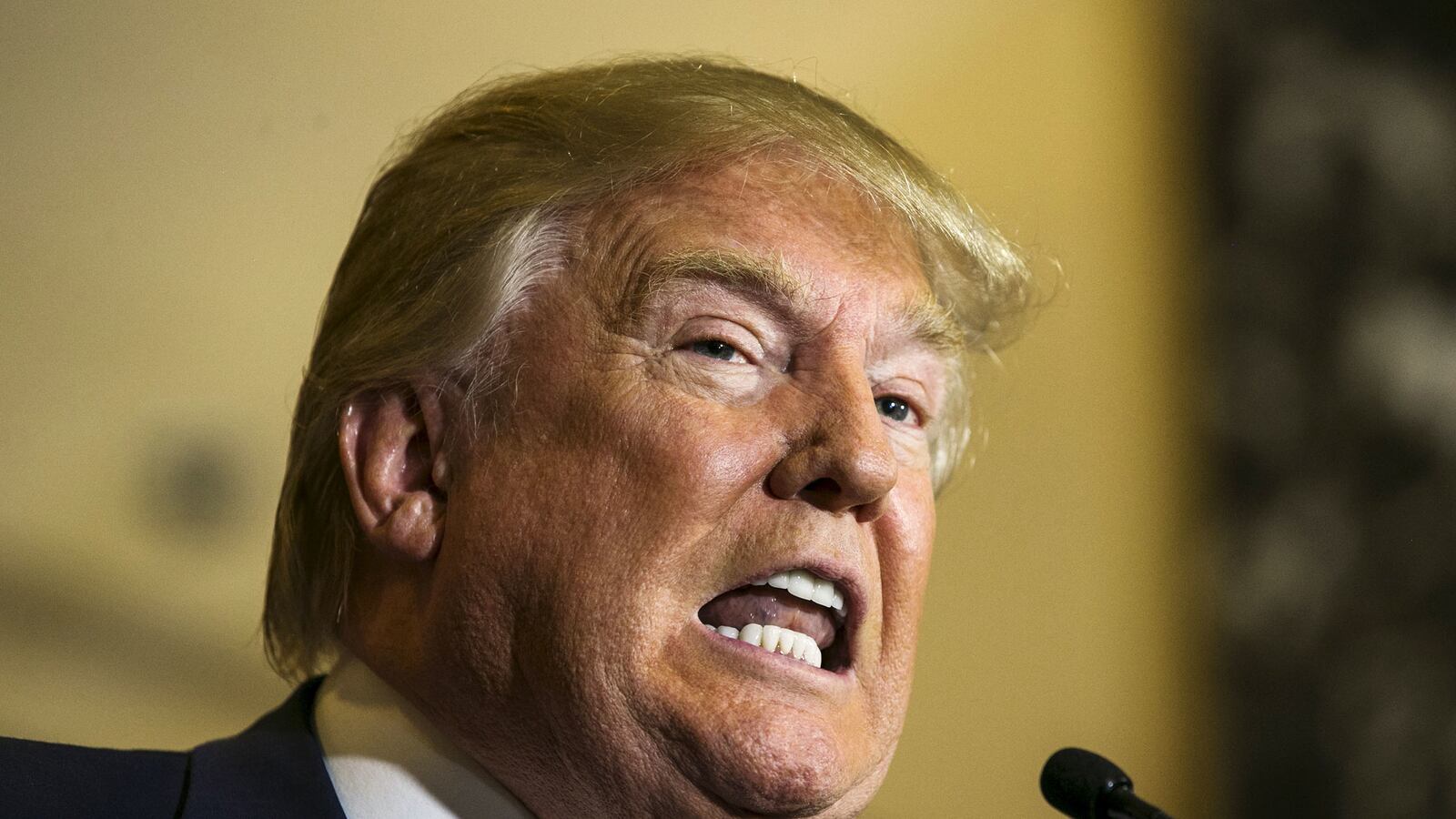When Donald Trump gets annoyed with something, he has his crack team of lawyers handle it. Case in point: his current issue with the Club for Growth’s negative attack ads airing in Iowa, which use actual quotes from Trump in the past to paint him as supportive of national health care, imposing higher taxes, and his infamous 2004 line, “in many cases I probably identify more as a Democrat.”
Despite the fact this is probably one of the more common practices in American politics, Trump decided to threaten a lawsuit, but it’s who made the threat and how it was delivered that may have run afoul of the rules, according to campaign finance experts.
On Monday, Alan Garten, who describes himself as general counsel at the Trump Organization, penned a cease and desist letter to the political advocacy group claiming defamation, despite the fact that the ad has Donald Trump quotes said by Donald Trump.
“Simply stated, your Attack Ad is not only completely disingenuous, but replete with outright lies, false, defamatory, and destructive statements and downright fabrications which you fully know to be untrue, thereby exposing you and your so-called “club” to liability for damages and other tortious harm,” Garten wrote.
Here’s the problem: The missive was written on letterhead with “The Trump Organization,” which is the corporate entity attached to Trump that is and should not be not at all related to his presidential campaign.
The issue is that Garten is the Trump Organization’s general counsel, meaning he’s on the company dime, and corporations are expressly prohibited from contributing to campaigns by the Federal Election Commission (FEC).
“If I were his lawyer, I would have advised him to send this thing from his campaign committee,” Paul Ryan, senior counsel at the Campaign Legal Center, told The Daily Beast. Ryan reviewed the letter and said he had “a hard time believing” it could be unrelated to influencing the outcome of his presidential campaign.
“Contributions from federal government contractors are prohibited,” the FEC’s website states. “The prohibition applies to contributions from the personal or business funds of individuals or sole proprietors who have entered into a contract with the federal government. It does not apply, however, to personal contributions by employees, partners, shareholders or officers of businesses with government contracts; nor does it apply to separate segregated funds established by corporations or labor organizations with government contracts.”
The FEC declined to comment on whether The Donald violated this rule.
“We don't comment on any candidate or his or her activity as there is always the potential for matters to come before the Commission,” said Christian Hilland, the deputy press officer for the FEC.
So if the Trump Organization, as the letterhead suggests, was responsible for doling out the cash necessary for Garten to write this, Trump might have broken the rules.
“If [the Trump Organization] is a corporation, and the Trump Organization paid Alan Garten to write this letter, and this letter is for the purpose of influencing his campaign, that would amount to an illegal contribution,” Ryan said.
The one potential caveat is if Garten wrote this letter on a volunteer basis. But even then, as Lawrence Noble, a second senior counsel at the Campaign Legal Center, explained, if he used company time and company resources to write the letter, it still treads into murky legal waters.
“It’s hard to see exactly what they’re thinking about here whether they think they’ve done this legally,” Noble said. “Or whether or not they’re shooting from the hip on this.”
Stanford constitutional law professor Nathaniel Persily wasn’t completely convinced that the actual sending of the letter is an act related to the campaign, despite the fact that appears to have nothing to do with the business side of Trump’s life.
“Although [Trump] may derive some benefit from it, it did not jump out to me as a violation of a campaign finance law,” Persily told The Daily Beast.
For what it’s worth, there is at least one other instance where a politically directed letter has been sent with a Trump Organization letterhead, including this one for CNN President Jeff Zucker on September 8.
The golden-haired mogul might have more trouble on his hands than an ongoing tiff with a so-called “club.”
“There could be a civil penalty, the [FEC] could order that the campaign pay the company for the use of the services,” Noble explained. “In an instance where it’s a knowing and willful violation, the penalties could go up and theoretically the Department of Justice could bring a criminal prosecution.”
These instances are extremely rare and require a hefty amount of hard evidence, according to Noble. In the meantime, Club for Growth is not changing its tune.
“Trump’s own statements prove that our ads are accurate,” Club for Growth President David McIntosh said. “They will continue to run. We suggest that Donald grow up, stop whining, and try to defend his liberal record.”
Trump’s campaign has not returned a request for comment about his whining or the letterhead.
“There’s clearly a reason to investigate further what’s going on there,” Noble told The Daily Beast. “It looks like it may very well be a violation of the law. It’s hard to see how they’re going to explain away everything.”






